Escalating Persecution Targets Baha'i Community In Iran
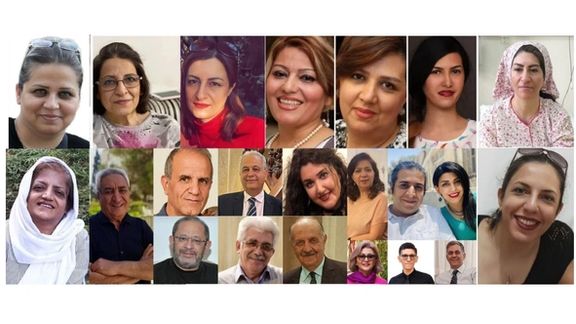
In a surge of persecutions against the Baha'i religious community in Iran, 36 new incidents have come to light in recent days, disproportionately impacting women.

In a surge of persecutions against the Baha'i religious community in Iran, 36 new incidents have come to light in recent days, disproportionately impacting women.
Ten women, many of them young, were apprehended in Esfahan (Isfahan), central Iran, earlier this week, with an additional three arrests reported in Yazd, the Bahai’s International Community reported.
The arrests were marked by home invasions and the confiscation of personal possessions, including electronics, books, cash, and even gold. In a particularly disconcerting instance, more than ten agents were involved in the raid during one woman's arrest.
Each of the arrested Baha'i individuals and the victims of home invasions carried out by the Iranian government has a profoundly personal and harrowing account of persecution that has permeated every aspect of their lives, the statement says.
The recent wave of arrests and harsh prison sentences follows over a year of heightened attacks on Iran's Baha'i community. Dozens of Baha'is have been subjected to arrests, trials, sentencing, or bans from university education and livelihoods in recent months. In August, the Baha'i International Community reported that 180 Baha'is, including a 90-year-old man had been targeted.
Two other Baha'i women, Mahvash Sabet and Fariba Kamalabadi, who had previously endured a decade in prison from 2008 to 2018, were re-arrested in July 2022 and are currently serving a second 10-year jail term.
In Iran, approximately 300,000 Baha'is reside, and they frequently document a pattern of systematic rights violations. The violations encompass harassment, forced displacement from their residences and businesses, and unequal treatment with regard to government employment and access to higher education.
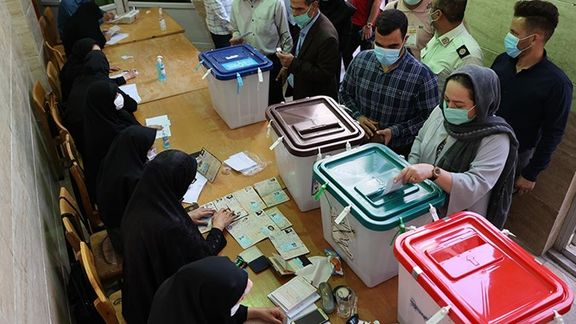
Although reports say around 40,000 people have registered as candidates for the 290 seats of the Iranian Parliament (Majles), no one knows how accurate the figure is.
Online registration for the upcoming parliamentary elections, scheduled for March 1, 2024, was conducted discreetly. The registration website is not accessible to the public, leaving candidates' identities concealed.
Several prominent figures, including former Presidents Mohammad Khatami, Mahmoud Ahmadinejad, and Hassan Rouhani, as well as former Majles Speakers Ali Akbar Nateq Nouri, Gholam Ali Haddad Adel, and Ali Larijani, have announced their decision not to run in the election.
While Rouhani, Ahmadinejad, and Larijani plan to support like-minded candidates, Khatami seems disinterested in the election, possibly stemming from previous frustrations with reformist candidates being disqualified by the regime in past elections. Some even interpret his lack of interest as a sign of boycotting the election altogether.
Some reformists, most notably women's rights activist Faezeh Hashemi has openly boycotted the election and several other reformists have said they might consider a boycott if the situation of vetting and approval of candidates remains as biased and restrictive as before. Some political figures such as the former mayor of Tehran Gholamhossein Karbaschi have called on reformists not to be shy or intimidated and to officially declare their boycott.
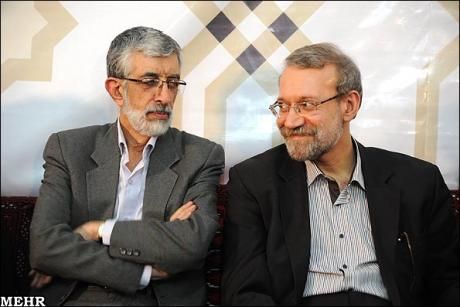
Centrist politician Mohammad Namazi says the upcoming election will offer no surprise as he cannot see any sign of a competitive plebiscite ahead. According to Nameh News, political activity concerning the upcoming election appears to be at a minimum.
Namazi, armed with insider knowledge, emphasized that while approximately 40,000 individuals have submitted their candidacies, there is a noticeable absence of prominent political figures among them. Furthermore, he highlighted the persistence of rigorous restrictions and filters imposed on candidates through the vetting process, which is overseen by the Guardian Council under Supreme Leader Ali Khamenei's control. Despite the active involvement of certain conservative factions, Namazi noted a lack of enthusiasm among other politicians and the general public, especially in major urban centers. He found it peculiar that there is no discernible government-driven momentum or excitement surrounding the forthcoming elections.
Most political parties seem to lack a well-defined strategy for the upcoming elections. Hossein Marashi, a senior member of the centrist Executives of Construction, was reported as stating that his party intends to withhold its decision until the Guardian Council releases the list of approved candidates. Only then will they consider endorsing a select number of candidates.
Marashi has also suggested that the government holds the key to whether the upcoming elections will be competitive. If the government chooses to extend the registration period and permits broader participation, competitive elections could become a possibility. In such a scenario, political parties may take the opportunity to present their platforms and agendas to persuade the public to participate.
Meanwhile, conservative politician and Islamic Coalition Party member Hamid Reza Taraqqi admitted in an interview that a large number of Iranians did not know that this is an election year in Iran. However, he suggested that lack of public interest is an indication that Iranians are overwhelmed by the news of the war in Gaza. It seems he overlooked the possibility that voters' reluctance and indifference might be a consequence of the government's apathy toward the demands expressed by the people in various nationwide protests since 2018.
The only part of the Iranian political spectrum which is happy about the people's indifference is the ultraconservative Paydari Party which has the upper hand in the current Majles with scores of young but otherwise inexperienced lawmakers who now have a proven record of inefficiency and lack of interest in the people's demands. They know that like the previous election, they can easily win the parliament in a low-turnout election.
Rumor has it that Paydari has registered the candidacy of a couple of its heavyweights such as Party Leader Sadeq Mahsouli and former nuclear negotiator Saeed Jalili. If this is true, it shows that Paydari is planning to further strengthen its foothold in the parliament and Iran's next government which is to be elected two years after the Majles election.
According to unofficial reports on candidate registrations, around 40 percent of candidates are between 30 and 40 years old, 36 percent are aged 40 to 50, while the remaining candidates fall in the 50 to 75 age range. This trend reflects the ongoing shift toward a younger generation of politicians in the Majles, many of whom may lack a deep understanding of the clerical regime’s founding promises regarding the welfare, freedom, and independence of Iran.
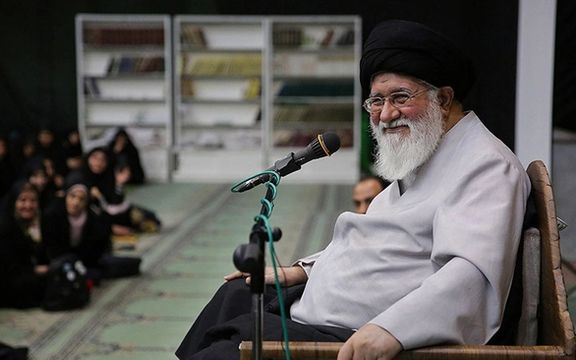
All the country’s resources should be at the disposal of the government to help Gaza and Palestine fight Israel, a firebrand senior cleric has said during Friday prayers.
Ahmad Alamolhoda is Supreme Leader Ali Khamenei’s representative in one of the most important Shiite cities, Mashhad, where a revered imam is buried. He is also the father-in-law of Ebrahim Raisi, who was handpicked by Khamenei to become president in 2021, simply by barring all other serious candidates from running, in what turned out to be a selection rather than an election.
“As soon as the Supreme Leader commands, we should all rush to help Palestine and Gaza using all of the resources belonging to the regime and the people.”
“We have a duty to destroy Israel,” Alamolhoda said.
The hardline rhetoric comes amid rising tensions in the Middle East as the Hamas-Israel war rages on. This adds to the wave of incendiary remarks made by Iranian authorities in recent days warning Israel and its ally the United States of escalating tensions if attacks on Gaza don’t stop.
On Thursday, Iran’s foreign minister, Hossein Amir-Abdollahian repeated the regime’s warning during an emergency meeting of the UN General Assembly on the Israel-Hamas conflict in New York.
"I say frankly to the American statesmen, who are now managing the genocide in Palestine, that we do not welcome the expansion of the war in the region.”
“But if the genocide in Gaza continues, they will not be spared from this fire,” said Abdollahian.
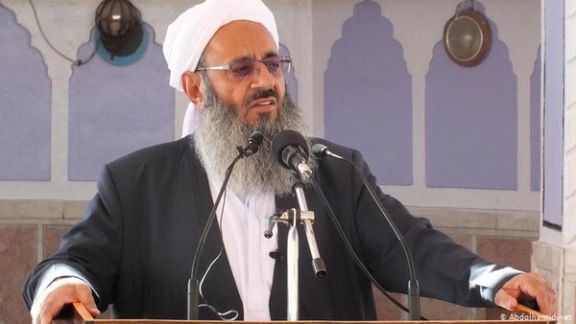
The outspoken leader of Iran's Sunnis, Mowlavi Abdolhamid has called for the release of worshipers and citizens of Zahedan who were arrested by security forces last week.
On Friday, the people of Zahedan silently marched in protest amid internet shutdowns in a highly securitised environment in response to a request by Abdolhamid.
Zahedan, which is the capital of Sistan-Baluchistan province, has been the epicenter of ongoing anti-government protests since the death of Mahsa Amini, a young Kurdish woman who was killed in police custody for improper hijab in September 2022.
In his weekly remarks during Friday prayers, Abdolhamid also spoke about the ongoing Hamas-Israel war and called it a “difficult situation.”
“The United States and Europe should not allow Israel a free hand,” Abdolhamid said referring to the bombings in Gaza. The cleric also said last week that the war had reached a “dangerous place” and called for the release of hostages brutally taken by Hamas.
Abdolhamid, renowned for his outspoken views, has expressed his criticism of Hamas' declaration of war against Israel on October 7.
"We will not blindly support a Muslim who goes too far and ignores international law and attacks women and kills children," he said, going against the regime's rhetoric that Hamas must continue to crush Israel until it no longer exists.
His remarks stand in contrast to the stance of the Iranian regime, which has consistently advocated for the "destruction" of Israel, effectively rejecting the notion of a two-state solution.
Iranian authorities exploit every opportunity to underscore the imperative of Israel's "destruction," a slogan that has been accompanied by substantial financial support for militant groups like Hamas and Hezbollah.

The US on Friday issued a second round of sanctions aimed at Palestinian militant group Hamas, including a Hamas official in Iran and members of Iran's IRGC.
The measures target additional assets in a Hamas investment portfolio and people facilitating sanctions evasion by Hamas-affiliated companies, the US Treasury Department said in a statement.
A Gaza-based entity that Treasury said has served as a conduit for illicit Iranian funds to Hamas and the Palestinian Islamic Jihad (PIJ) group was also targeted, the department said. Iran backs Hamas and other militant groups in the Middle East.
"We will not hesitate to take action to further degrade Hamas’s ability to commit horrific terrorist attacks by relentlessly targeting its financial activities and streams of funding," Deputy Treasury Secretary Wally Adeyemo wrote, adding the sanctions aimed "to deny Hamas the ability to exploit the international financial system."
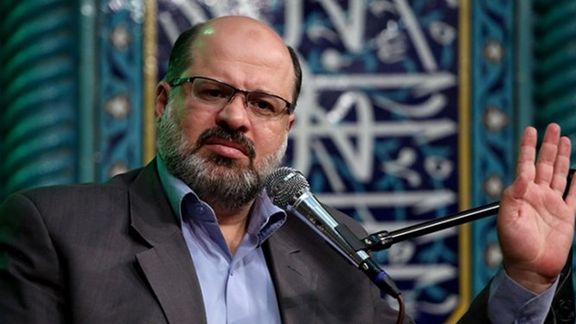
Adeyemo said some firms in the digital asset space were not doing enough to stop the flow of illicit finance.
Israel has bombed Hamas targets in the densely populated Gaza Strip following the October 7 terror attack that killed 1,400 people. Hamas took more than 200 hostages, some of them infants, in the assault.
The Hamas-controlled Gaza health ministry said on Thursday that 7,028 Palestinians had been killed in Israel's retaliatory air strikes. The figure cannot be independently verified.
Friday's action freezes any US assets of the targeted groups and generally bars Americans from dealing with them. Those that engage in certain transactions with them also risk being hit with sanctions.
The Treasury said it imposed sanctions on a Jordanian national who lives in the Iranian capital, Tehran, and who it said serves as the representative of Hamas in Iran, as well as Islamic Revolutionary Guard Corps Qods Force (IRGC-QF) officials who train and assist members of Hamas and other militant groups.
An Iran-based commander of the Saberin Special Forces Brigade of the IRGC Ground Force was also targeted. The US Treasury said the Saberin Brigade has deployed to Syria and has provided training to Hamas and members of the Lebanon-based Hezbollah.
Hundreds of Iranian or Iran-linked individuals and companies are already under US sanctions for their illicit activities in the country’s nuclear, missile and terror-related activities.
Sudan and Spain-based companies were also targeted under Friday's measures, as were Turkey-based shareholders of a company previously designated as part of the Hamas investment portfolio.
The United States has said that the Hamas portfolio of investments, estimated to be worth hundreds of millions of dollars, includes companies operating in Turkey, as well as Sudan, Algeria, the United Arab Emirates and elsewhere.
This month's violence has led to fears of a broader conflict in the Middle East.
The US military on Thursday carried out strikes against two facilities in eastern Syria used by Iran's Revolutionary Guards and groups it backs following a spate of attacks against U.S. forces in Iraq and Syria.
However, Iranian and Iraqi media reported on Friday that two US bases came under attack in Syria and Iraq following the US retaliatory strike.
With reporting by Reuters
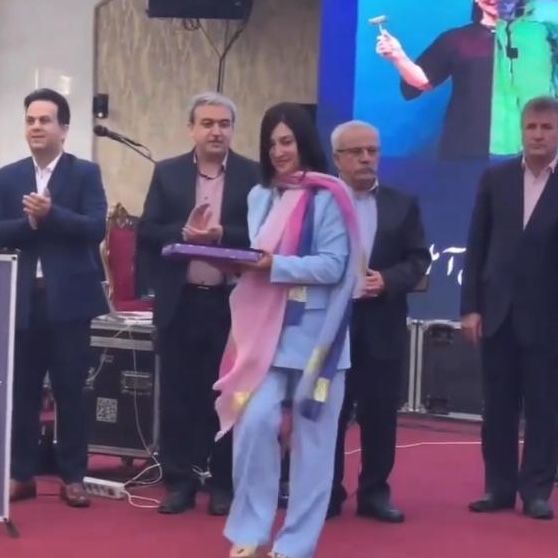
Videos on social media are circulating showing a female doctor appearing in a public ceremony without wearing the hijab enforced by the Islamic regime in Iran.
Fatemeh Rejayi-Rad went on stage to accept an award for best doctor in a banquette in the city of Amol in northern Iran. Rajayi-Rad who is an Oral and Maxillofacial Surgeon had her medical licence revoked following the event as punishment for defying hijab rules.
The ceremony which took place in celebration of Physicians Day on October 24th in Amol was attended by doctors and members of the medical profession.
Local media has reported that Rajayi-Rad had angered members of the clergy and is now being prohibited from entering the university in Amol.
On Friday, another video of Rajayi-Rad was published on state media in Iran, showing the doctor in full Islamic attire apologizing for her actions.
“I sincerely apologize to anyone who I have offended for not wearing a full hijab.”
“In recent days I have been receiving phone calls from anonymous people offering me [political] asylum [abroad].”
“I will say here and now that I am the child of this soil and water and will stay in Iran where I will be following the rules including wearing the hijab,” said Rajayi-Rad in a video.
Forced confessions and retractions are an intimidation tactic used by authorities in Iran to instil fear amongst the public.